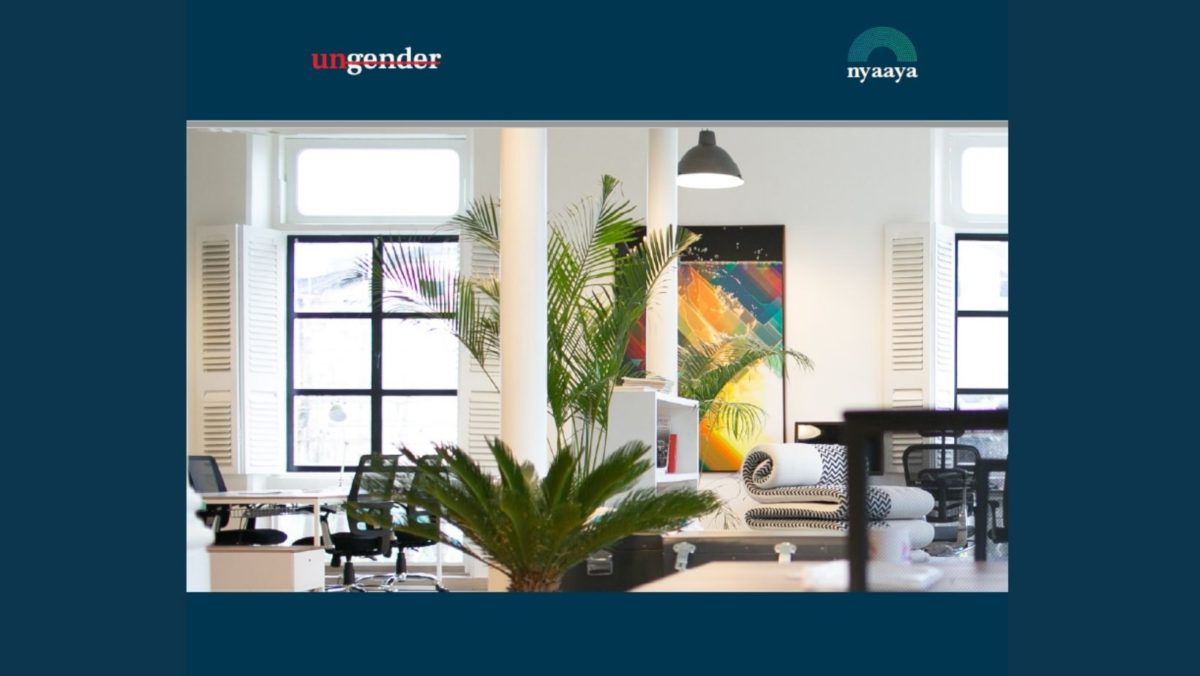Ungender x Nyaaya Collaboration on Guide for Survivors of Sexual Harassment at the Workplace

The Guide for Survivors of Sexual Harassment at the Workplace is a resource that provides you with knowledge of and assists you in accessing available redressal mechanisms for sexual harassment at your place of work. This is also a handy document to refer to for clarity of legal definitions of sexual harassment, established procedures for investigations, for remedies and/or punishments, internal committees that look after this policy and so on.

The guide discusses important laws like Sexual Harassment of Women at Workplace (Prevention, Prohibition and Redressal) Act, 2013 (“POSH Act”), The Sexual Harassment of Women at Workplace (Prevention, Prohibition and Redressal) Rules, 2013 (“POSH Rules”) and the Indian Penal Code, 1860, (“IPC”) that helps with redressal mechanisms as well as filing complaints. Furthermore, the guide also discusses the importance of workplace infrastructure like Internal Committees that aid victims with filing complaints as well as the legal proceedings that follow. Rutuja, Head of Growth at Ungender says:
Companies not only need to be POSH compliant, they should also make an effort to create support groups for survivors, bring on board mental health professionals and create an environment of trust and safety to make reporting easier for employees.
The guide also relates what constitutes as workplace harassment, as well as what constitutes a workplace. Moreover, the specific roles and responsibilities that members of the Internal Committee play when it comes to the procedure of redressal is mentioned in the guide as well. You can also watch an IGTV on the importance of support systems for sexual harassment survivors at workplaces here.
Important information with regards to alternate complaint mechanisms as well as formalisation without an IC are mentioned in the guide to help victims get easy access to redressal mechanisms. A section has been dedicated that speaks of the timeline when it comes to addressing the complaint. Moreover, the guide also clearly states the rights the complainant has while the IC investigates the complaint.

Narratives around workplace harassment are not always given importance which leads to victims and survivors not having access to proper redressal mechanisms or complaint filing procedures. Malavika, Content Lead at Nyaaya says:
Awareness about the law and anti-harassment policies can effectively permeate cultural changes resulting in a sense of community, professional solidarity, support and respect for the employees. Employees will learn to be more sensitive and empathetic to such issues and this will encourage a safe workspace for a person of any gender. Companies who are transparent and encourage trainings will benefit from creating a zero-tolerance approach to sexual harassment, as it would lead to a safer (and happier) work culture.
The guide in collaboration with Nyaaya is a way to address the inhibitions women and non-binary individuals may face while filing complaints or while accessing legal procedure for the same. The comprehensive guide helps sexual harassment survivors gain access to information and awareness that they are unable to find in their workplaces or otherwise. The guide can be downloaded here.
Read our insights about diversity, legal updates and industry knowledge on workplace inclusion at Ungender Insights. Visit our Blog.
Sign up to stay up-to-date with our free e-mail newsletter.
The above insights are a product of our learning from our advisory work at Ungender. Our Team specialises in advising workplaces on gender centric laws.
or email us at contact@ungender.in




